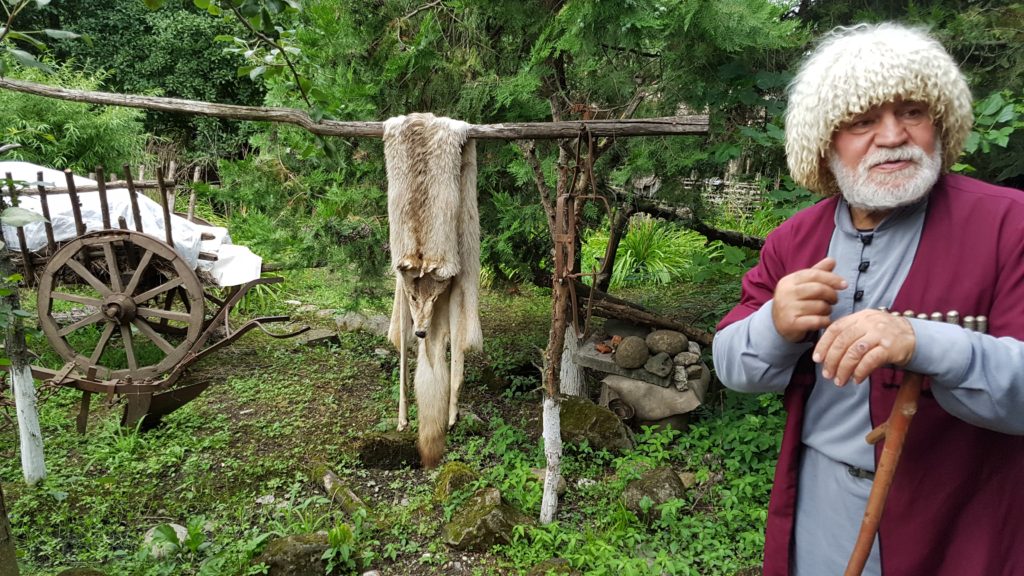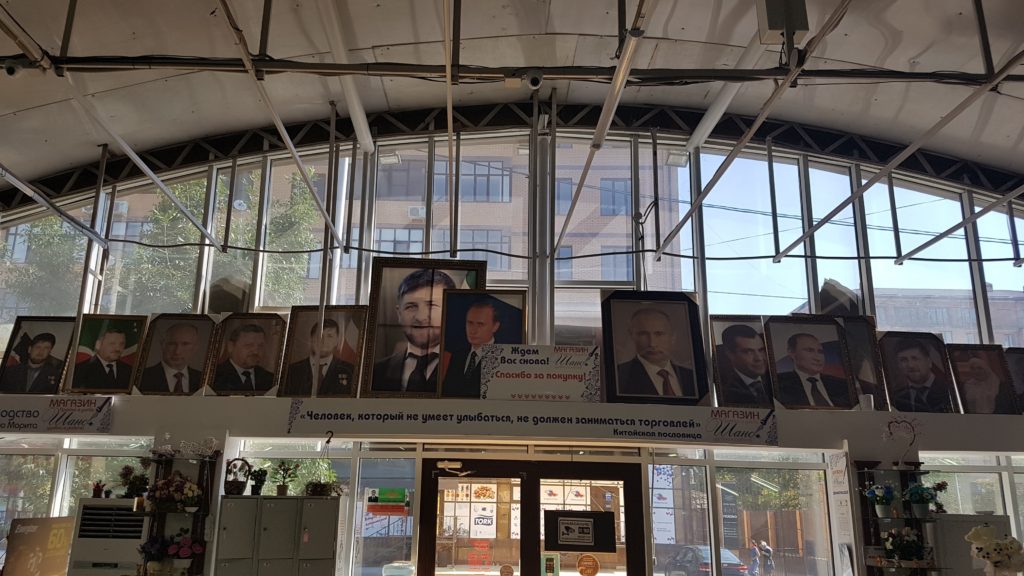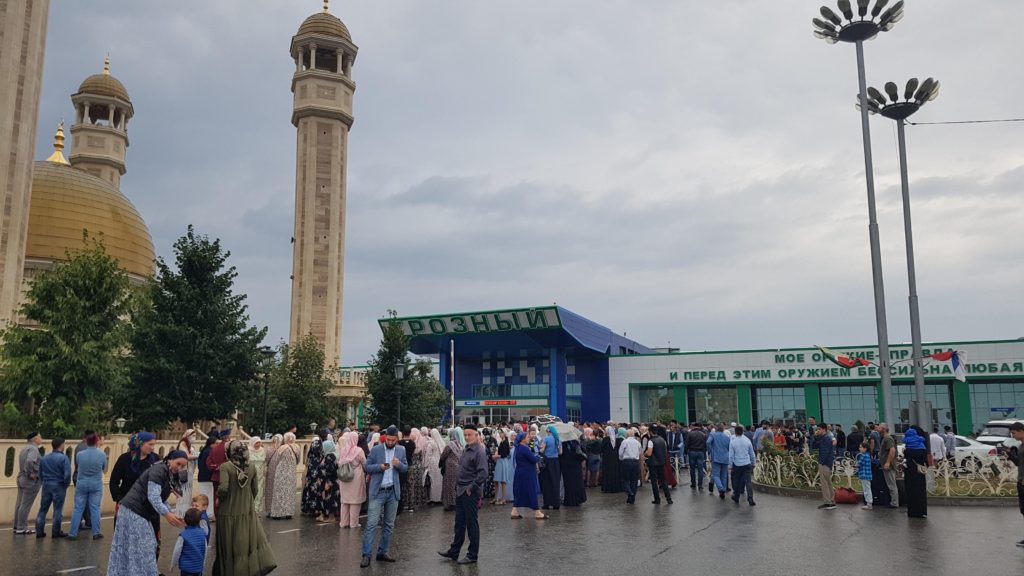After surviving two grueling civil wars that decimated its population and infrastructure, Chechnya has been reborn into a popular destination amongst Russian and some hardcore Western tourists, a concept that would have been unthinkable only ten years ago.
I’ve spent a lot of time in Chechnya and the wider North Caucasus leading group and private tours. As a result, I’ve have been lucky enough to get a first-hand look into the fascinating world of Chechen language and local culture. So read on for the Soviet Wasteland guide to this incredibly resilient and ancient republic.

Whilst Russian is of course largely spoken in these parts, Chechen is the official language of Chechnya and still widely spoken amongst locals. Across the globe, there are over 1.5 million Chechen language speakers, mostly in Chechnya itself and by members of the Chechen diaspora throughout Europe, Russia, Jordan, Central Asia, and Georgia. Many of the diasporas found themselves in these far-flung destinations after relentless persecution or war through the centuries.
History of the Chechen Language:
In the era before the Russian Empire led the first of many blood-stained conquests across Chechnya and the North Caucasus, writing in Chechnya consisted of Islamic texts and clan histories. The Chechen literary language was created after the October Revolution, and the Latin script began to be used instead of Arabic for Chechen writing in the mid-1920s. The Cyrillic script was adopted in 1938.
The Chechen diaspora in Jordan, Turkey, and Syria is fluent but generally not literate in Chechen except for individuals who have made efforts to learn the writing system, and of course, as the Cyrillic alphabet is not generally known in these countries, most use the Latin alphabet.
Dialects
Incredibly, for such a small republic the Chechen language has 11 different dialects classified by their geographic position within the Chechen Republic: Akkish, Chantish, Chebarloish, Malkhish, Nokhchmakhkakhoish, Orstkhoish, Sharoish, Shuotoish, Terloish, Itum-Qalish, and Himoish. many dialects are also used for communication between tribes (known as a teip) or within a larger Chechen “tukkhum”.

Jordan
On one of our tours to Chechnya, we were lucky enough to meet an ethnic Chechen who was born and raised in Amman, Jordan. It was his first visit back to his ancestral homeland, but he spoke fluent Chechen without error. Chechens in Jordan have good relations with the Hashemite Kingdom and are able to practice their own culture and language freely. Chechen language usage is strong among the Chechen community in Jordan. Chechens are bilingual in both Chechen and Arabic but do not speak Arabic among themselves, only speaking Chechen to other Chechens. Some Jordanians are literate in Chechen as well, having managed to read and write to people visiting Jordan from Chechnya.
Culture
Chechnya, a federal republic of the Russian Federation and is under the rule of Moscow. However, the republic has it’s own parliament and president, which is currently Ramzan Kadyrov, a former separatist warlord who defected to the Russian side during the Second Chechen War.
The predominant religion is Islam and most Chechens identify with either the Sunni or Sufi branch of the religion. Chechen culture is also dominated by a fierce code of honor and hospitality towards guests. When traveling through Chechnya, it’s not uncommon to be invited to family feasts and weddings, put up in homes and be treated to levels of hospitality largely unseen in the rest of the world.

Chechens are fiercely proud of their ancient culture and have fought through the centuries to defend it. During the 1990s, Chechens began to publish collections of Chechen memoirs and folklore. Traditional music is very percussive and energetic, defined by the accordion and heavy drums and often accompanied by the high energy Lezginka dance.
A common greeting among men is a firm handshake. Women are expected to behave according to Islamic law, especially in the company of men, keeping their eyes lowered. It’s common practise in Chechnya that when a man enters the room, women stand in respect. Social gatherings are mostly divided according to gender with the children assigned to the women.
Today, Chechen nationalism is becoming more popular as well as increasing awareness of Islamic identity. As a result, some Chechens, especially the youth, have adopted very conservative Islamic dress.
To visit the fascinating republic of Chechnya and the wider Caucasus region, contact us today for a quote on a private tour! For similar articles, check out the great post on Is Chechnya Safe? from the team at Reaper Feed.
